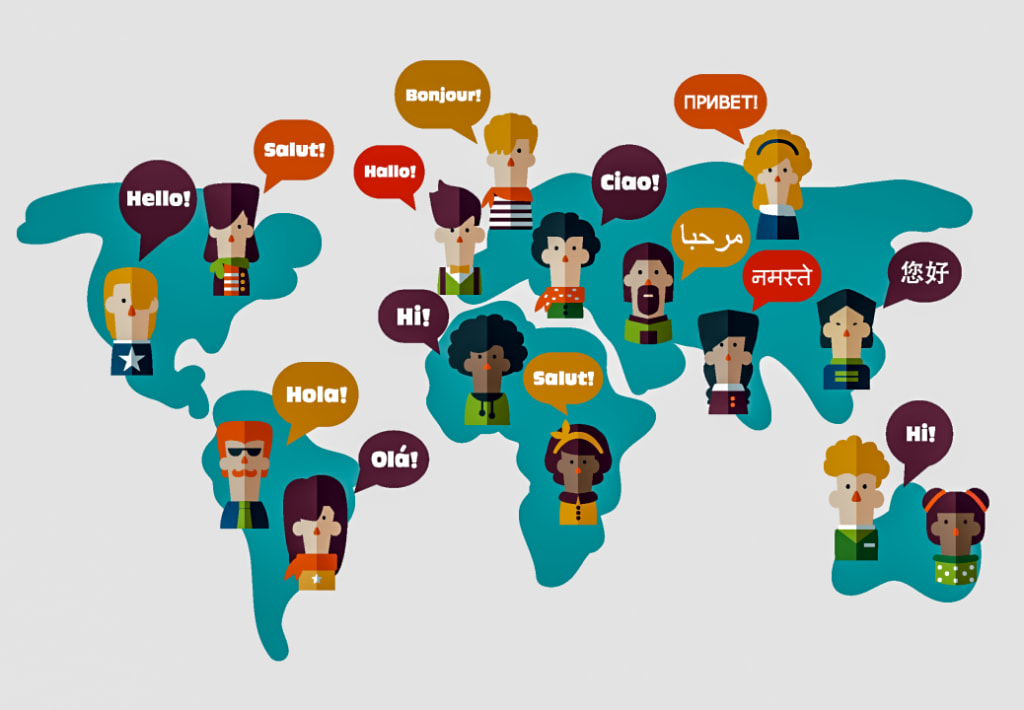Decoding the Dynamics:
Sociolinguistics and Language in Society

Introduction:
Sociolinguistics is the study of language in its social context, exploring how language use and variation are shaped by social factors such as identity, culture, power, and interaction. In this article, we delve into the fascinating field of sociolinguistics, unraveling the complexities of language in society and its profound impact on human communication and identity. From language attitudes to linguistic diversity, we explore the intricate interplay between language and society, shedding light on the diverse ways in which language reflects and shapes social structures and relationships.
Understanding Sociolinguistics:
Sociolinguistics examines the relationship between language and society, investigating how language is used, interpreted, and valued within different social contexts. It explores questions such as:
How do social factors such as age, gender, ethnicity, and socioeconomic status influence language use and variation?
What role do power dynamics, social norms, and cultural practices play in shaping language attitudes and behavior?
How do linguistic features such as accent, dialect, and code-switching serve as markers of social identity and group membership?
By addressing these questions, sociolinguistics seeks to uncover the underlying patterns and processes that govern language in society, illuminating the ways in which language both reflects and reinforces social structures and relationships.
Language Variation and Change:
One of the central themes in sociolinguistics is the study of language variation and change, examining how linguistic features vary across different social groups, regions, and contexts. Language variation encompasses differences in pronunciation, vocabulary, grammar, and discourse patterns, reflecting the diverse linguistic repertoires and communication styles of speakers within a community.
Sociolinguists use methods such as linguistic surveys, interviews, and corpus analysis to document and analyze patterns of language variation and change. They investigate phenomena such as:
Regional dialects: Variations in pronunciation, vocabulary, and grammar that are associated with specific geographic regions.
Social dialects: Variations in language use that are associated with social factors such as age, gender, ethnicity, and socioeconomic status.
Style shifting: The ability of speakers to adjust their language use to suit different social contexts and interactional goals, such as formal vs. informal speech or interactions with peers vs. authority figures.
Language Attitudes and Ideologies:
Language attitudes refer to individuals' beliefs, perceptions, and evaluations of different linguistic varieties and forms. Language ideologies are the broader cultural beliefs and discourses that shape language attitudes and influence language use and policy.
Sociolinguists examine how language attitudes and ideologies are constructed, negotiated, and reproduced within society, shedding light on issues such as:
Linguistic prejudice and discrimination: Negative attitudes towards certain linguistic varieties or speakers based on stereotypes, biases, or social hierarchies.
Language standardization and ideology: Beliefs about the superiority or legitimacy of certain linguistic standards or norms, often associated with dominant social groups or institutions.
Language planning and policy: Efforts to regulate, promote, or suppress specific languages or language varieties through official policies, education, and media representation.
Language, Identity, and Power:
Language plays a central role in the construction and negotiation of social identity, serving as a marker of individual and group membership, affiliation, and solidarity. Language choices and practices are shaped by complex interactions of identity categories such as:
Ethnicity and nationality: Language can be a powerful symbol of ethnic or national identity, connecting speakers to their cultural heritage and ancestral roots.
Gender and sexuality: Language use may reflect and reinforce gender norms and stereotypes, with differences observed in vocabulary, speech patterns, and interactional styles.
Social class and status: Language can be a marker of social class and status, with linguistic features associated with prestige or stigma depending on their perceived social value.
Conclusion:
Sociolinguistics offers invaluable insights into the complex relationship between language and society, illuminating the ways in which language both reflects and shapes social structures, relationships, and identities. By understanding the dynamics of language variation, attitudes, and ideologies, we gain a deeper appreciation for the diversity and complexity of human communication.
As we navigate the intricacies of language in society, let us recognize the power of language to shape our perceptions, interactions, and experiences. By fostering linguistic awareness, empathy, and inclusivity, we can create a more equitable and respectful linguistic landscape where all voices are heard, valued, and celebrated. Through the lens of sociolinguistics, we can strive towards a more just and harmonious society where language serves as a bridge rather than a barrier to understanding and solidarity.
About the Creator
Mohamed Ali
Mohamed Ali is a passionate writer and researcher with a keen interest in exploring the complexities of human behavior and society through the lens of sociology. With a background in sociology and psychology.
Enjoyed the story? Support the Creator.
Subscribe for free to receive all their stories in your feed. You could also pledge your support or give them a one-off tip, letting them know you appreciate their work.






Comments
There are no comments for this story
Be the first to respond and start the conversation.